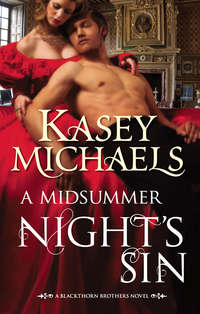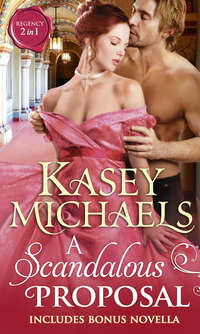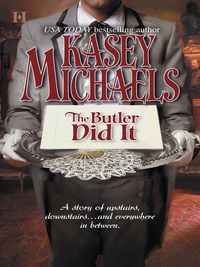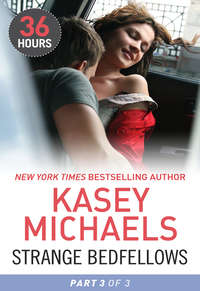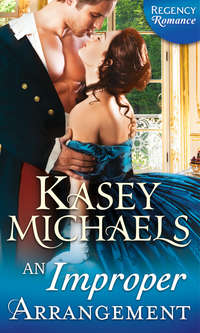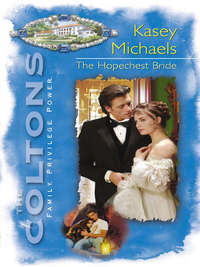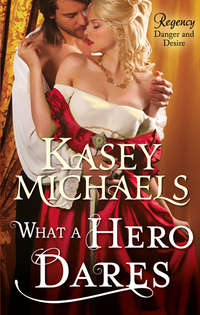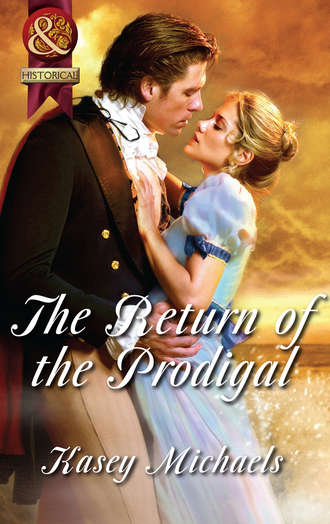
Полная версия
The Return of the Prodigal
“And, wanting her, he betrayed Papa.”
“Your papa wished to leave the islands, but Geoffrey was not ready to go, to end it. He was always greedy, and he had turned to the blood thirst. More, he always wanted more. He wanted your maman. Even as she nursed you at her breast, he wanted her. I saw it, I felt it, I tried to warn your papa, but he trusted his good friend, Geoffrey Baskin.”
Lisette nodded. What she and Loringa spoke of was a story, a tragedy, but it was also Lisette’s history. “Papa trusted him when he said he wanted only one last voyage, one last adventure together, one with more bounty in it than either of them would ever need. But he had already betrayed Papa, lied to him, and when Papa sailed into the middle of what was supposed to be a group of unarmed merchant ships, it was to find that he was outmanned, outnumbered. And worse, he’d been tricked into attacking English ships. He lost almost everything, but he survived.”
“Only to return to his island home to find your maman dead. Everyone dead. A slaughter that left no man, woman or child alive. Even the animals—nothing breathed on our island. And all the booty, all your papa would take to England to begin a new life, now in the bowels of his partner’s ships. I watched from the trees, keeping you silent in my arms, while Geoffrey Baskin raped your mother for refusing him, for spitting in his face, for cutting him with the knife she had hidden beneath her skirts. Twice he raped her, on the sand, in front of everyone, and then he turned her over to his men. In my dreams, I still hear Marguerite’s screams. I could do nothing, child, Odette’s evil paralyzing me. It was all I could do to pray, invoke the good loa to keep you shielded from her eyes, for your papa would need you in his sorrow.”
Lisette blinked back tears for the mother she’d never known. “I thank you for that, Loringa. I know we have our differences, but I thank you for that. I only wish Papa could have kept me with him.”
“To live like him, branded a pirate, forced to flee the hangman? The nuns kept you safe, and your papa hunted Geoffrey Baskin and his traitorous crew, seeking vengeance. But it was not to be. He learned that Baskin and both his ships, overburdened by the weight of so much treasure, had floundered in a storm, that God had meted out His own justice. How your father hated God for taking his revenge from him. I despaired of your papa then, that he would destroy himself, but there was still you, his Marguerite’s child, and he would rebuild, find another way to fortune.”
“Helping Bonaparte, taking sides against the England that would have sentenced him to hang if they’d found him,” Lisette said, glancing at the clock on the mantel, knowing it was time she went to Rian Becket, led him away on a moonlit path of lies. “The same England he wanted to return to two years ago and longs to return to now, to live in the open at last. He says I’m to have a Season, but that is probably impossible now, after what I’ve done. But I don’t care.”
“A discussion for another day. Your papa, he always has his reasons, and he has always planned to return to England, no longer a fugitive, with or without you, foolish girl. But now this Becket, this man Odette protects, this man who could know Geoffrey Baskin? I am right, I know I am, and your father will at last get his revenge.”
“As will I,” Lisette said fervently as Loringa once more pushed herself up from the chair and left the bedchamber without another word.
Lisette sat down on the edge of the bed, her eyes dry now, her resolve strengthened. Geoffrey Baskin and his crew of murderers had taken her mother from her, had nearly destroyed her father, had stolen so many years of her life. Nothing she did now, to help her papa find this man, would be too much for her. Nothing.
Especially now.
How much did she believe in Loringa and her Voodoo? That was a question she didn’t want to ask herself, didn’t want to answer. Just as she was now going to keep a secret from the woman, and from her papa, who wouldn’t allow her to leave here tonight if she told him what she now knew for certain.
Lisette sighed, got up from the bed, and opened the bottom drawer of the bureau, extracting the small velvet pouch she’d hidden there along with Rian Becket’s other few possessions she’d taken from him that first night he had been brought to the manor house. His belt buckle, his gold epaulets, the coins she’d found in his bloodied purse. She plucked at the strings until the pouch opened, and then dumped its contents on the bedspread.
She reached into the pocket of her cloak, at last giving in to her excitement, her fear; her hands trembling, her breathing ragged, painful.
And laid the gad’s twin beside it…
WHEN THE DOOR to his bedchamber finally opened some ten minutes after two o’clock in the morning, Rian was there to grab Lisette by the elbow and pull her quickly into the room, shutting the door behind her.
“You’re late,” he told her once he’d kissed her roughly, released her. “I was about to come hunting you.”
Lisette put up her hand, stroked his cheek. “Such impatience. I had to wait until the house was quiet. Cook was fussing about in the kitchens, demanding my help as she prepares vegetables for the Comte’s return. Word was sent ahead. He arrives as early as tomorrow, so we have almost left it too late. You feel feverish. Are you certain you can walk to the place where I have decided to rent the coach? It is a distance of at least two miles across the fields.”
Rian knew he was far from well, but he didn’t need to hear Lisette say so. “I’ll be fine. What’s that?”
“This?” She held up the small portmanteau. “You expect me to travel without fresh linen? Without tooth powder? I think not, Rian Becket. I have provided for you as well.”
“Yes, you have. I hope the Comte wasn’t too fond of these breeches. Give me that.”
She held the portmanteau away from him. “Don’t worry, Rian Becket, I will carry it. But you, the man, should take charge of this, yes? There will be less questions that way.”
He watched as she reached into the pocket of her cloak and extracted a small bag. It was heavy with coins as she placed it in his hand. “Your Comte may not come after us in particular, Lisette, but he might be tempted to retrieve his coins. Do they hang thieves in France?”
She shrugged. “Madame Guillotine, I would suppose. Every village still has her. Much neater, or so I’ve heard it told. But he will not find us, not if we move quickly. Where is the cloak I brought you this morning?”
“On the bed, beneath the covers, in case anyone decided to come check on me,” Rian told her, and then watched as she uncovered the thing and brought it to him. “And the food, Lisette. It’s wrapped inside a pillowcase and in the drawer beside the bed.”
“You make a very good conspirator, Rian Becket,” Lisette told him, retracing her steps and returning with the pillowcase. She opened the portmanteau and shoved the case inside, redid the straps. “And now, if there is nothing else, I suggest we use the front stairs, to avoid any of the servants who might still be awake.”
“Leaving by the front door? That’s daring. And a good suggestion, if you have the key.”
She smiled and pulled a large iron key from that same pocket in her cloak. “It hangs on a nail with all the others, on a board just outside the kitchens. Or it did, until I plucked it up. Are you frightened, Rian? I’m frightened. What will they do if they catch us?”
Rian had thought about that for most of the day, and didn’t much care for any of the answers that had occurred to him. Mostly, having poured his daily draught of medicine into the top of his boot as he’d distracted Lisette by asking her if she heard carriage wheels outside the window, he felt alert, much more awake than he had in weeks. If the fever was also back, that was a small price to pay to feel more in control of himself.
He’d have no more of draughts, of vile-tasting medicines, for now. Time enough for both once he and Lisette were safely at Becket Hall, and Odette was fussing over him like a hen with one chick.
He was glad he was going home, after avoiding even the thought of his return for so long. His brothers, his sisters. Ainsley and Jacko and all the others. Yes, they’d fuss over him and make him uncomfortable, they’d look at him with sympathy in their eyes. But they could all move beyond that, someday.
But now was not the time to feel nostalgic. It was time now to ask himself some very important questions.
Why had he been brought here from the battlefield he felt certain had been many miles away? Lisette’s answer, that it was a matter of ransom, didn’t seem logical to him, not when his thinking was clearer.
Who, precisely, was the Comte Beltrane?
Was it happenstance that Lisette had come to his bed?
Was it convenient that she felt this need to escape the manor house, even more convenient that she had chosen to take him with her?
Who was it, he tried to remember, who first suggested she help him return to his home?
Most importantly—could he trust her? Could he trust his family’s safety to her?
“Rian? You stand here like a statue. Are you afraid to leave? Because I will go without you.”
He looked at her intently. “You’d do that, Lisette? Leave without me?”
“Absolument!”
And he relaxed. “I believe you would. What a heartless little creature you are,” he told her, smiling as he depressed the door latch. “Now hush.”
He stepped into the hallway, listened for a full minute, and then motioned for her to join him. Together, careful to keep to the carpets laid not quite end-to-end along the hallway, they made their way down the long staircase that was broken by a marble landing.
They were halfway down the remaining stairs when it was Lisette who grabbed his arm, held him back.
Rian listened, and heard it. Voices, coming from the drawing room directly across the width of the foyer from them.
French. Two men, speaking French. Well, a fat lot of good that was going to do him, Rian decided, looking to Lisette.
She put a finger to her lips, leaning her head forward, as if to hear better.
And then she turned to him, her eyes wide and frightened, her cheeks so suddenly pale he worried that she might be about to faint.
“Le Comte,” she whispered, and then pressed her hand to her mouth as if holding back a sob.
Rian looked to the slightly opened doors. Damn. He wanted to see the man for himself. Confront him. Thank him, play the grateful guest—but also confront him. Attempt to take his measure. Measure his motives.
He started forward, managing to go down two more steps before Lisette nearly tackled him, trying to hold him back.
“I want to see,” he told her quietly.
“And me?” she asked him, her whisper fierce. “You’d do this to me? You’d be so cruel?”
“Damn.” With one last look toward the drawing room, Rian took Lisette’s hand and they made their way quickly and quietly to the large double front doors.
Lisette’s hands were shaking so badly that Rian took the key from her and inserted it in the lock, alternating his gaze between the lock and the open doors to the drawing room.
The latch, when it turned, sounded to him like cannonshot.
They both held their breath. Rian counted to ten, slowly, before he moved once more.
Then they were outside, the door closed once more behind them, and Lisette was pulling him down the few marble steps to the gravel drive. “Hurry, hurry.”
This time Rian did shake her off, pushing her as she frantically kept trying to drag him away from the manor house, so that she landed on her rump in the gravel, the portmanteau beside her.
“Sorry,” he said shortly, moving to his right, toward the well-lit windows that fronted the drawing room. But it was no good, the windows were too high. He stood very still, attempting to marshal his thoughts. Looked all around, for something to stand on. There was nothing.
Except that tree, on the other side of the gravel drive.
Rian ran for it, stood beneath it, measured his chances of reaching that first low branch and swinging himself up onto it.
With two good hands, he could do it easily. With one?
“Help me,” he told Lisette, who had picked herself up from the gravel and was now glaring at him as she held the portmanteau in one hand and slapped at the back of her skirts with the other.
“I should murder you,” she told him, still whispering. “You want me in his bed? You’re that cruel?”
“This is no time for dramatics, Lisette,” he told her, holding back a smile. The woman was livid! She was livid, and he felt alive for the first time in months. “See if you can help boost me up to that first branch. I want to see this host of mine.”
“No! He is old, he is ugly. He is inconsiderate, coming home a day early. Bâtard. Rian, please. You promised we’d go. We must hire the coach and be gone before sunrise.”
Rian looked once more to the tree, once more to the windows.
His good mood soured. He was useless, less than useless. He couldn’t even climb a damn silly tree!
Lisette was crying softly now, and his decision was made for him.
No matter what he wondered about the man in the drawing room, Lisette was who she said she was. An innocent, frightened half out of her mind. And his savior. It was enough that he would remember the manor house, be able to guide his brothers back to it once he returned home.
He held out his hand to Lisette and, together, they began the long walk to the outskirts of Valenciennes.
CHAPTER FOUR
LISETTE COLLAPSED ONTO the thin, uncomfortable seat of the hired coach and cursed her papa. She’d been shaking inside for over three hours, and still felt none too steady.
What had he been thinking?
To add authenticity to her escape?
She could still feel the clench in her stomach as she’d heard her papa’s voice, realized he was no more than twenty feet away. And mocking her. The things he’d been saying! Hinting at filthy things, about how he would bed her, teach her how to pleasure a man the way he wanted to be pleasured. And then he’d laughed, both he and his friend Renard, that horrid, sharp-nosed man who made Lisette’s flesh crawl.
She believed she could understand why he had done what he’d done, said what he’d said. So that she would look truly appalled, and Rian would be given yet another reason to trust her. But did her papa have to say those things to the terrible Renard?
She disliked her papa’s friends, all of them. They laughed too loudly, they drank too much, and when her papa was not watching, they looked at her too hard. But she didn’t tell her papa that, because these were his crew, he’d told her, and they had been with him from the beginning, in the islands, and they were the only men he could truly trust in a world that each year found a new way to go utterly mad.
He had other friends, her papa. Important, powerful friends. Like the man, Charles Talleyrand, who had joined them for dinner one night while she had been in Paris with her papa. That man had dressed well, had spoken well, was a gentleman of privilege. But he had also looked at her too hard when Papa wasn’t watching.
Sister Marie Auguste had been right. Men were no more than a necessary evil.
“Here now, you’re shivering,” she said, turning to one of those necessary evils, frowning as she saw the perspiration on his brow, the white line around his tightly compressed lips. “I don’t understand this, Rian. You were well, yesterday.”
“I hadn’t walked for hours in a cold drizzle yesterday,” he said, pulling his cloak more fully around himself. “Two miles, Lisette? It was three miles if it was a step.”
“I’m so sorry. I didn’t think you’d come with me, if you knew it was that far. But we’re safe now, on our way to the coast, with dawn only an hour behind us. They will have missed me by now, and you as well. How soon do you think they will come looking for us?”
“I don’t understand much French, Lisette, but I heard the Comte. I heard him say your name, and I listened to the tone in his voice. He’s not going to let you go so easily.”
“Or you,” Lisette reminded him, lest he tell her they should part ways, so that he could travel home safely, without being chased all the way by her papa. After all, he was a man, and therefore probably selfish at his core. “I told you. The Comte, he does nothing without a reason. I don’t know why he wants you, but he does.”
“So much for believing in Good Samaritans,” Rian said, smiling. But his teeth were chattering, and Lisette quickly slipped out of her own damp cloak, to lay it across his chest. “Damn. Maybe I do need one of those vile draughts of yours.”
Lisette reached down to open the portmanteau and made a great business out of searching it for the bottle of medicine she knew wasn’t there. She’d had enough of Loringa’s potions, confusing him, keeping him perhaps too muddled to find his way home. “It isn’t…I…I can’t find it, Rian!” She pulled underclothing from the portmanteau and dug deeper. “It’s—no, wait, here it— C’est une tragédie! I have brought the wrong bottle! It was dark, and I was fearful of lighting a candle. Oh, Rian, no!”
She held up the dark blue bottle with its cork seal.
He looked at it owlishly. “What is it?”
“Not the medicine for your fever,” Lisette said, sighing. “It is laudanum, to make you sleep. For the headache, for the pain from your wounds. It will do nothing for your fever. Rian, I am so sorry. You will die now.”
He looked at her, one eyebrow raised, and then laughed. “My loyal nurse cheers me no end. I won’t die, Lisette. I’m weeks past dying. But I will avail myself of some of that laudanum, once we’ve stopped for the night.”
“Because you’re in pain? Where? Tell me. Where is the pain?”
“In my ears. I keep hearing silly chattering in my ears.”
“You are not amusing, Rian Becket. Not at all.” Lisette replaced the bottle and threw the underclothes back in on top of it. But this was good. He would take the laudanum instead, as she had hoped, and he would sleep. She needed no more of the confusion she found when he held her in his arms at night, as he made love to her. “I liked you better when you were sleeping. My pretty poet, with the face of an angel. I will mix some with water for you when we reach Petit Rume.”
She felt his heated fingers against her nape as he took hold of her collar and pulled her back up straight on the seat.
“We’re not heading toward Petit Rume, Lisette,” he told her, and she looked at him in very real shock. “I begged a rude map from the fellow back at the stables, and he drew me the most direct route to the Channel.”
Lisette nodded furiously. “Yes, yes. And Petit Rume is a logical step in that journey.”
“Exactly. Think, Lisette. We’re fleeing the Comte, a man you believe will follow you, try to bring you back to the manor house. He would expect you to head for the Channel, and England. After all, you are English, and you say you have no one in France to care for you. It’s only, as you said, logical. So, instead of traveling west, as I assured the stable owner we would do, we are heading directly north.”
“North?” Lisette fought an urge to pull down the side window, stick out her head, look for the men who were following after them. “But what is north?”
“Belgium.”
“But…but—”
“We are no more than forty miles distant from Brussels, although there is no reason to travel that far before heading to the west once more. I’ve studied maps of Belgium, Lisette, so much so that I can very nearly see them in my mind. I’ve ridden the miles between Brussels and Nivelles to the south, and Tubize to the east, reconnoitering for Wellington. The land is easy to travel, and the people friendly to the English. We’ll make our way to Ostend, where I first landed, and take ship there.”
“But…but wouldn’t the Comte think you would do that?” Lisette asked him, racking her brains for a way out of this unexpected disaster. “He has to know you might take us to more familiar…territory?” She crossed her arms in front of her. “So my way is better, yes?”
“No way is better, Lisette,” he said, rubbing at his forehead as if his head ached. “Yours is one way, mine is another. I chose mine.”
Lisette wasn’t ready to give up. “But mine is probably faster.”
“Yes, and if I were to leave you when we next stop to rest the horses, and used some of the Comte’s lovely English gold to buy myself a mount, I could be in Ostend tomorrow night. Now let me rest, all right? Either I rest, or I’ll soon be casting up my accounts all over your shoe tops.”
“Your stomach is sick? Then perhaps I should give you some of the laudanum now?”
He shook his head, and then winced, clearly having caused himself pain. “I need my wits about me, Lisette. And, when next we stop, I need to search out a pistol, a sword. I feel naked, and I’m supposed to be defending you.”
“That’s very nice of you, Rian Becket,” Lisette grumbled, settling against the back of the seat, knowing she had lost the battle. “When we are finally safe with your family, and if you have not had occasion to throw up on my shoes, I will tell them all how brave you were.”
How brave you were…
Rian squeezed his eyes more firmly shut, his body swaying slightly with the movement of the coach, wishing away the words that kept repeating, repeating, inside his head as he floated in and out of a dream.
Brave? Had he been brave? He didn’t remember, couldn’t remember. God only knew how hard he’d been trying to recall what had happened that day, how he had come to be wounded, how he had been brought to the Comte’s manor house.
A residence approximately three miles outside of Valenciennes. He knew that now, too. And after seeing it drawn on the stable owner’s crude map, he knew that Valenciennes was more than forty miles away from the battlefield now spoken of as the battle of Waterloo.
It made no sense. None of it. Who rescued a wounded soldier from the field and then moved him to a place more than two days’ travel away?
Why hadn’t he thought of all of this sooner, as he’d begun to recover from his wounds? He’d tried to rouse himself, he really had, but then he’d fade away again, become interested in a sunset, the way light played across Lisette’s hair, the smoothness and sweet smell of his sheets, even the texture of the meat in his mouth as he chewed it. He could stare for hours at the trees outside his window, fascinated by the way the passing breeze stirred the leaves into pictures for him…houses, boats, even prettily spotted cows.
Cows in trees. How asinine.
Yet it had been so easy to keep drifting away, to be enthralled by pretty pictures, pretty colors, almost able to forget that he was no longer a whole man, even stop feeling tingles and itches in a hand that was no longer there.
It damn well had been easier without the fever.
But no. No more medicine, and at least now he wouldn’t have to find ways to pour it away rather than drink it. Because he had to concentrate his mind. Lisette depended on him. And he might have put her in more danger than she could possibly comprehend.
So he let his new, waking dream take him back to that day, the morning of the battle. Pushed himself to remember.
He’d spent the morning riding out, relaying Wellington’s orders, carrying messages back to the Duke as he and Bonaparte waited for the mud to dry on the field between them, waited for the first man to give the order to begin the battle.
Yes, he remembered that. Jupiter had been magnificent. Never tiring, always ready to give his all for his master, even as the long day wore on and there were more messages, requiring more riding. Dodging French patrols, galloping over rough terrain, never shying at the crash of the cannons, the sharp barks of the rifle volleys.


